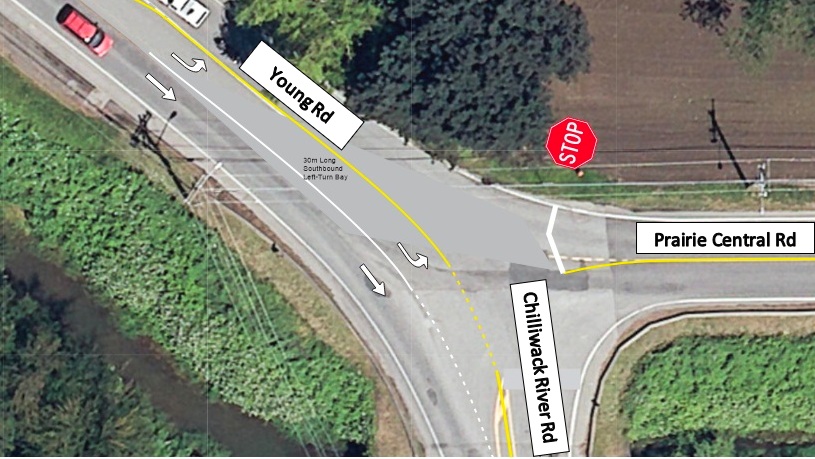Victoria/Fraser Valley – The British Columbia Real Estate Association (BCREA) welcomes the Government of British Columbia’s inclusion of exemptions from the speculation and vacancy tax proposed as Bill 45 . Some of the exemptions directly address concerns BCREA brought to the Province’s attention through its advocacy work.
The Bill allows for exemptions for British Columbians going through traumatic life events such as illness and divorces or separations. It also allows for exemptions for owners of properties that are being developed or undergoing renovations.
It also exempts strata units from a vacancy tax for 2018 and 2019, where strata restrictions prohibit rentals. Further clarity is needed on this exemption and other implications.
BCREA, its 11 regional real estate boards and the 23,000 REALTORS® they represent look forward to providing the Province with REALTOR® insight on the implementation of Bill 45 to ensure that the best interests of BC homeowners are served.
From the Provincial Release:
The B.C. government introduced the Budget Measures Implementation (Speculation and Vacancy Tax) Act, 2018. It is a key part of the government’s plan to tackle the housing crisis by discouraging speculation and leaving homes vacant.
Over 99% of all British Columbians will be exempt from the speculation and vacancy tax. Exemptions for British Columbians include principal residence, rented properties and special circumstances, such home renovations and for significant hardship.
For residential properties where the tax applies, the rate varies depending on the owner’s tax residency and whether the owner is a Canadian citizen or permanent resident, or a member of a satellite family.
For 2018, the tax will be levied at:
- 0.5% of the property’s assessed value for all properties subject to the tax.
For 2019 and subsequent years, the tax will be levied at:
- 2% for foreign investors and satellite families;
- 1% for Canadian citizens and permanent residents who are not resident in British Columbia for income tax purposes (and not members of a satellite family); and
- 0.5% for British Columbians who are Canadian citizens or permanent residents (and not members of a satellite family).
By levying the highest tax rate on foreign owners and satellite families, the tax targets people with limited social and economic ties to the province.
Where it applies
The following areas are subject to the speculation and vacancy tax:
- Municipalities within the Capital Regional District;
- Municipalities within Metro Vancouver
- excluding Bowen Island, the Village of Lions Bay and Electoral Area A, but including the University of British Columbia and the University Endowment Lands;
- The City of Abbotsford;
- The City of Chilliwack
- The District of Mission;
- The City of Kelowna
- The City of West Kelowna
- The City of Nanaimo
- The District of Lantzville; and
- Islands are not part of the taxable region unless they are accessible by bridge. Reserve lands, treaty lands and lands of a self-governing Indigenous Nation are not part of the taxable region.
Who is a foreign owner?
A foreign owner is an individual who is not a Canadian citizen or permanent resident of Canada. Provincial nominees under the Provincial Nominee Program are deemed to be B.C. residents in the year they become a provincial nominee and in the following year.
What is a satellite family?
A satellite family is an individual or spousal unit where the majority of their total worldwide income for the year is not reported on a Canadian tax return.
The Ministry of Finance has several tools available to ensure that worldwide income is reported accurately. Audits that compare house values to reported income will be used to identify households that may not accurately report their income for the purposes of the speculation and vacancy tax.
Exemptions for individuals
The majority of B.C. owners can claim an exemption from the speculation and vacancy tax. Available exemptions include the following:
Principal residence exemptions – B.C. residents are exempt on their principal residence. A principal residence is the residence a person spends the most time at within a tax year.
Medical absence from principal residence/residential care facility – B.C owners are exempt on their principal residence for up to two years if they are away from home due to medical reasons or because they reside in a residential care facility. For medical reasons, a practitioner must certify that the condition makes it impractical for the owner (or their spouse or child) to be at home. Residential care facilities must offer services such as daily meals and nursing care. To be eligible, the property must have been the owner’s principal residence in the previous year.
Principal residence of a person with a disability – Owners of a property are exempt if it is the principal residence of a person with a disability as determined under the Canada Pension Plan, Employment and Assistance for Persons with Disabilities Act or the Disability Tax Credit under the federal Income Tax Act. To claim this exemption, the disabled individual must be eligible to receive the disability benefits under one or more of the above programs.
Spousal separate residences (work/medical reasons) – Spouses who are B.C. residents that live apart due to work or medical reasons can claim principal residence exemptions on an additional home. An eligible medical reason is the same as described above. To qualify under “work reasons,” one principal residence must be at least 100 kilometres closer to the workplace than the distance between the other principal residence and the workplace; or one principal residence must be on Vancouver Island and the other residence is not on Vancouver Island.
Additional one-time principal residence exemption – B.C. owners can claim an exemption for up to one year out of every 10 years if they are absent from their principal residence for any reason. To be eligible, the property must have been the owner’s principal residence in the previous year.
Spousal separation exemption – Spouses who live apart for at least 90 days in a tax year due to a relationship breakdown are exempt on family property for up to two years, provided that there been a final agreement or final court order about the property division.
Bankruptcy exemption – An owner or a trustee in bankruptcy is exempt from tax if the owner’s property has vested with the trustee in bankruptcy for at least 60 consecutive days in the year, or is vested with the trustee in bankruptcy on Dec. 31.
Exemption upon death – If any owner of a property dies in a taxation year, all owners of the property are exempt in the year of death and the immediately following tax year.
Year of acquisition – Owners are exempt in the year they purchase a property if the purchase attracted property transfer tax, or if the transaction was exempt from property transfer tax for one of the following reasons:
- First-time home buyers exemption
- Newly built homes exemption
- Reversion, escheated or forfeited land exemption
- Transfers to or from a trustee in bankruptcy
- Transfers between related individuals are not eligible for this exemption but can qualify for a rental exemption if the property was occupied for at least six months of the year.
Rental Exemptions
Rental exemptions are available for homes occupied by tenants.
Arm’s-length rental – All owners who rent out their property to an arm’s-length tenant for at least six months of the year are exempt if there is a written tenancy agreement in place and the tenant resides in the property. For 2018, owners need to rent for only three months to qualify for this exemption.
Non-arm’s-length rental – Canadian owners who rent to a related (non-arm’s length) person for at least six months of the year are exempt if it is the occupant’s principal residence – a tenancy agreement does not need to be in place nor does rent need to be paid. A non-arm’s-length individual is someone who is related to the owner by blood, marriage, adoption or common-law partnership or as determined by fact to be dealing not at arm’s-length. This exemption generally does not apply to foreign owners and satellite families. For 2018, owners only need to rent for three months to qualify for this exemption. If a property has more than one residence and one residence meets the rental criteria, the entire property is exempt.
Strata with rental restrictions/strata hotels – All owners of a strata property that has restrictions in place that prevent a property from being rented out are exempt for the 2018 and 2019 tax years, as long as those rental restrictions were in place before legislation was tabled. Units in strata hotels are also exempt for the 2018 and 2019 tax years.
Exemptions for land use
Vacant land exemption (2018) – All owners of vacant land will be exempt for the 2018 tax year.
Licensed daycare exemptions – Properties used as licenced day cares will be exempt.
Property being developed/renovated – Owners of a property that is being developed or renovated are exempt if reasonable steps are being taken without undue delay to develop or substantially renovate the property. These exemptions also cover phased developments that occur over time, vacant new inventory (unsold units) and heritage property if conservation work is taking place. To be eligible for the exemption, the owner must be carrying out eligible building activity.
“Building activity” is defined to include the following types of activities:
- applying for financing;
- applying for a permit or other necessary approval, including community consultations;
- entering into contracts for designing, building or engineering;
- demolishing or removing existing improvements;
- clearing or excavating the site; and
- constructing or placing the residence on the property or substantially renovating the residence.
“Substantial renovation” is defined as the renovation of an existing residence that is part of a residential property to such an extent that the residence must be vacant.
Hazardous/damaged property exemption – If a property is damaged, destroyed or otherwise uninhabitable for at least 60 days in a tax year due to a dangerous condition or emergency, all owners are exempt for up to two years.
Tax credits
B.C. owners – B.C. owners are eligible for a tax credit of up to $2,000 on a secondary property. This exempts an owner on an otherwise-taxable home assessed at up to $400,000, or provides a $2,000 reduction in tax payable on a home assessed above $400,000 (e.g., a $500,000 property would only be taxed on $100,000). The credit is limited to $2,000 per taxpayer and $2,000 per property (in the case of multiple owners) per year. Tax credits cannot be carried forward or transferred to a spouse.
Foreign owners and satellite families – Foreign owners and satellite families can claim a tax credit equal to 20% of their B.C. income to reduce the 2% speculation and vacancy tax owing. The tax credit cannot reduce the tax payable to below the tax payable for an equivalent B.C. resident (zero on a principal residence or 0.5% on other properties). Unused tax credits may be carried forward up to two years or transferred to a spouse. The tax credits are pro-rated in 2018, when the tax rate is 0.5% for all owners.
Other Canadians – Non-B.C. resident Canadians will be eligible for a tax credit based on income claimed in B.C. The credit rate will be 10% to match the corresponding 1% tax rate. Unused tax credits may be carried forward up to two years or transferred to a spouse. The tax credits are pro-rated in 2018, when the tax rate is 0.5% for all owners.
Making your declaration
All residential property owners in the taxable areas must register online to claim their exemption or to pay their tax owed. The tax will be levied on owners who own the property on Dec. 31 of each taxation year.
The provincial government will send information to all homeowners on how to register and claim their exemption. This is called making a declaration and is similar to filing your income tax return.
In January, homeowners will receive a letter in the mail with registration information that will include two unique identification numbers. Owners will need these unique identification numbers, as well as their social insurance number, during the online registration process. Homeowners must register to claim their exemption. All owners of a property must register, even if they are married or related.
If a residential property owner does not receive a letter by the end of February, they should call 1 833 554-2323 for help completing their registration either online or over the phone.
Here are the important dates to remember:
- Jan. 18, 2019 – Registration opens
- March 31, 2019 – Registration closes
- July 2, 2019 – Speculation and vacancy tax due
Learn More:
For more information on the speculation and vacancy tax: gov.bc.ca/spectaxinfo
To ask questions about how the speculation and vacancy tax applies to you, call 1 833 554-2323 (toll-free in Canada and the U.S.) or 604 660-2421 (international).






